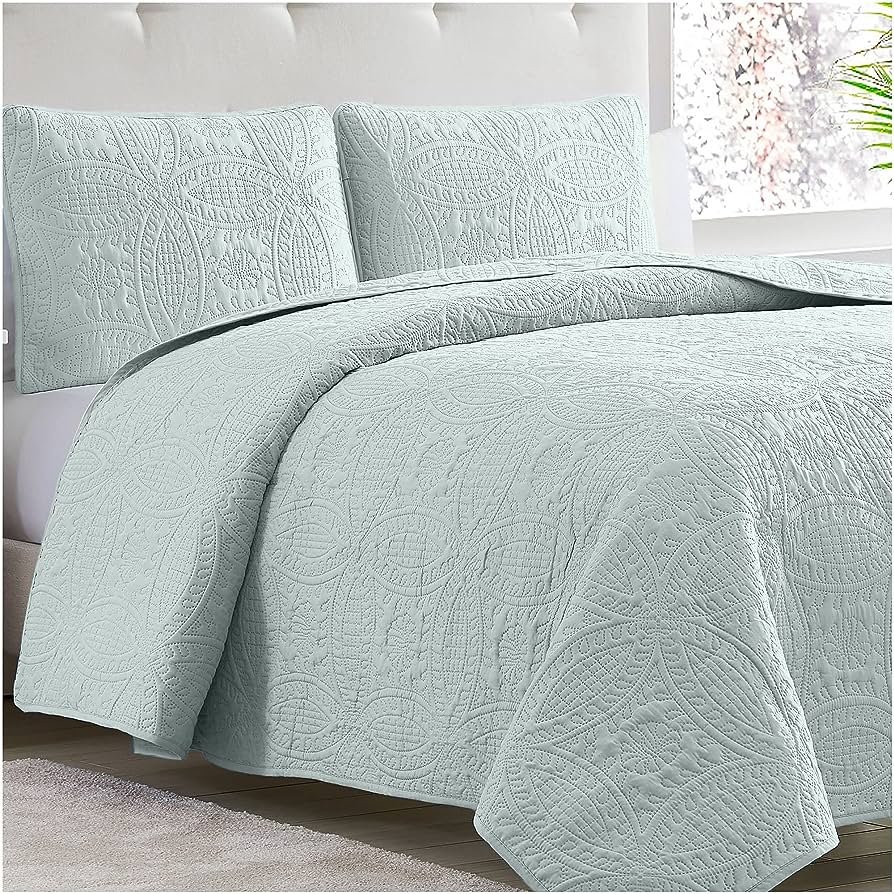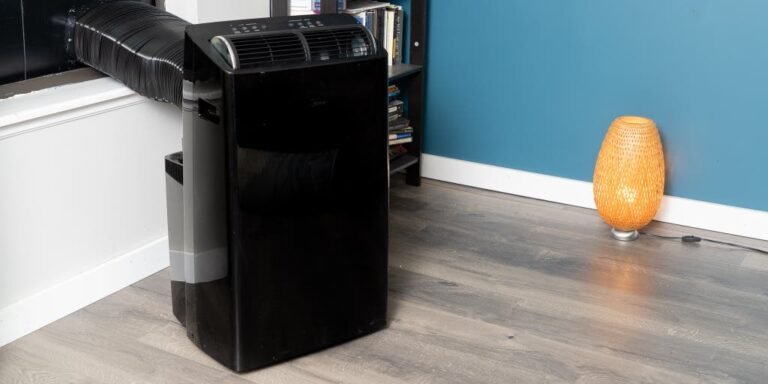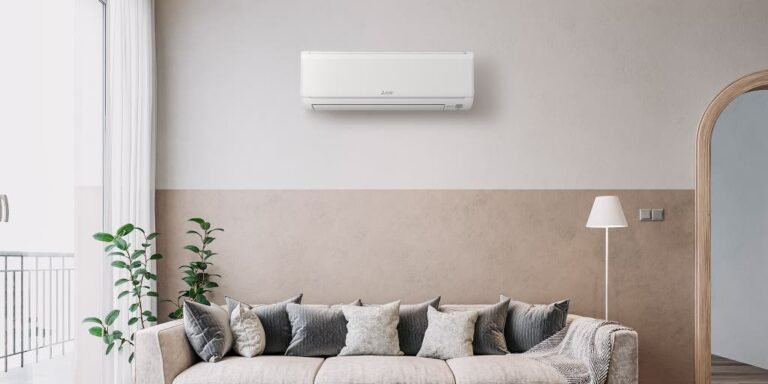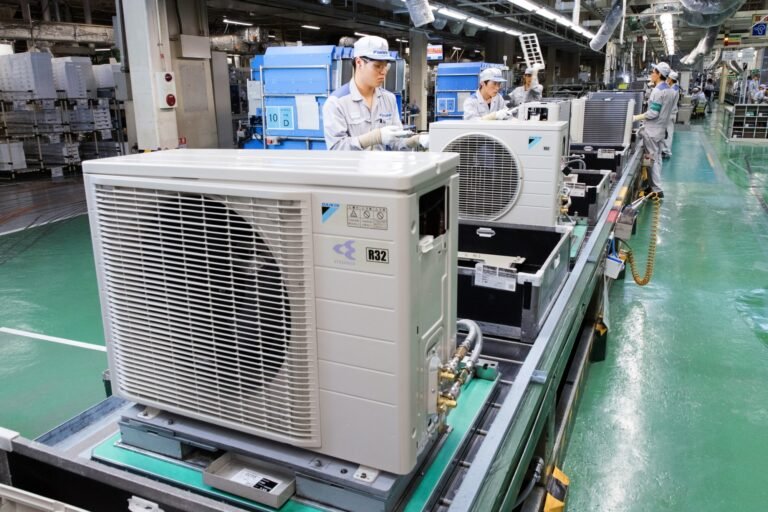Why Do I Sweat Even in Air Conditioning: Unraveling the Truth
Even in air conditioning, sweating is a natural response to the temperature and humidity changes caused by the cooling system. This can occur if the temperature is set too high for your comfort, causing your sweat glands to produce more sweat than the air conditioner can handle.
However, if you consistently experience excessive sweating even in air conditioning, it may be a sign of a bigger HVAC issue.
Sweating In Air Conditioning: Understanding The Phenomenon
Sweating in air conditioning can be a puzzling phenomenon, but understanding the underlying causes can help shed light on this issue.
One factor that contributes to excessive sweating in air-conditioned environments is humidity. When there is a significant traffic between the air-conditioned space and the outside environment, hot and humid air can infiltrate the room, leading to increased sweating.
Additionally, the temperature settings in the air conditioner can also impact sweating. If the temperature is set too high, it may not effectively cool the room and match the body’s comfort level, resulting in more sweat production.
It’s essential to recognize that sweating is a natural response of the body to regulate its temperature. However, if excessive sweating persists even in air-conditioned environments, it may be a sign of an underlying HVAC issue that needs to be addressed. Consulting a professional is recommended to ensure optimal comfort in air-conditioned spaces.
Medical Conditions And Sweating In Cool Rooms
Medical Conditions and Sweating in Cool Rooms
|
| Sweating in air conditioning can be attributed to various medical conditions. One such condition is hyperhidrosis, which causes excessive and unpredictable sweating, even in cool temperatures. Individuals with hyperhidrosis may sweat even at rest or in cool environments. Additionally, certain underlying health issues can lead to sweat production in air-conditioned rooms. Infections like tuberculosis or HIV, as well as health concerns such as cancer or heart failure, can contribute to night sweats. It is important to note that sweating in cool rooms is not solely dependent on temperature but can be influenced by factors like humidity and ventilation. Therefore, it is essential to identify the underlying cause and consult a medical professional for proper diagnosis and treatment. |
Hvac Issues And Sweating: Identifying Potential Problems
Sweating is a natural response of the body to regulate its temperature. When it comes to air conditioning, sometimes sweating can still occur due to HVAC system malfunctions. The connection between HVAC system malfunctions and sweating is important to identify potential problems. Some common HVAC problems that lead to sweating in air-conditioned rooms include improper insulation, inadequate ventilation, and malfunctioning thermostat or condensation lines. These issues can cause excess humidity and moisture buildup, leading to sweating. To prevent HVAC-related sweating, regular maintenance and inspection are crucial. Ensure that insulation is properly installed, proper ventilation is maintained, and thermostat and condensation lines are functioning correctly. By addressing these issues, you can create a comfortable and sweat-free environment even when the air conditioning is running.
Common HVAC Problems That Lead to Sweating in Air Conditioned Rooms:
- Improper insulation
- Inadequate ventilation
- Malfunctioning thermostat or condensation lines
Tips for Preventing HVAC-Related Sweating:
- Regular maintenance and inspection
- Proper installation of insulation
- Maintaining proper ventilation
- Ensure proper functioning of thermostat and condensation lines

Credit: www.amazon.com
Frequently Asked Questions Of Why Do I Sweat Even In Air Conditioning
Why Am I Sweating When The Ac Is On?
Sweating in AC can happen due to temperature and humidity changes caused by the cooling system. However, it may also be because the AC is not set to a comfortable temperature for you. Your sweat glands produce more sweat than the AC can handle if it’s too warm.
Why Am I Sweating In A Cool Room?
Sweating in a cool room can be due to the temperature and humidity changes caused by the air conditioning system. Excessive sweating may occur if the cooling system is not set at a comfortable temperature. Make sure to adjust the thermostat to a level that suits your comfort.
Why Do I Sweat Even When The Air Conditioning Is On?
Sweating is a natural response of the body to regulate its temperature. Even with the air conditioning on, your body may still produce sweat if the room temperature is not set low enough or if the humidity is high. Additionally, if there is poor insulation or air leakage, hot and humid air from outside may penetrate the air-conditioned room, making you sweat.
Can Air Conditioning Cause Excessive Sweating?
While air conditioning itself does not directly cause excessive sweating, it can contribute to sweating in certain situations. For example, if the air conditioning is not set to a cool enough temperature or if there are issues with insulation or air leakage, it can lead to an uncomfortable environment that triggers excessive sweating.
Conclusion
Sweating in air conditioning can be attributed to several factors, such as the temperature and humidity settings, as well as the presence of hot and humid air entering the air-conditioned space. Excessive sweating, known as hyperhidrosis, can also be a medical condition that causes sweat even in cool environments.
It is important to ensure proper temperature and humidity control in order to maintain comfort and avoid excessive sweating in air conditioning.







